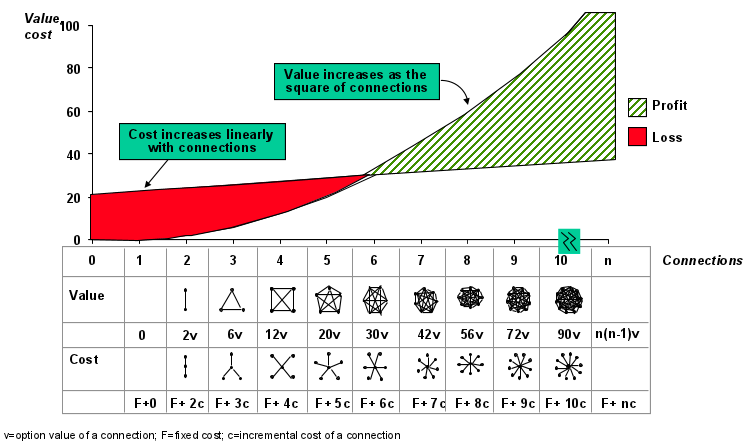 |
| source: medium.com |
Oligopolies (functional, rather than enforced by law) now are a key characteristic of most parts of the internet ecosystem. In other words, there are functional "gatekeepers" across most of the ecosystem.
That "winner take all" structure might emerge as the natural consequence of consumer choices, supplier skill and timing.
The biggest driver, though, is that some markets have "network effect" characteristics. That is why the "platform" role is so desirable.
Platforms benefit from scale, and grow with increasing scale. That arguably applies for operating systems, access services, devices and apps/
So most markets with scale economics and network effects arguably develop in the same way.
The point is that markets where winners are able to exploit network effects virtually always leads to oligopoly outcomes. Regulators can break up such markets, but to the extent that network effects actually matter, concentration always will reoccur.
In the application space, advertising revenue is dominated by Google and Facebook, which claim 63 percent of U.S. digital ad revenue in 2017. In the operating system market, Android and Apple iOS are the leaders, with 99-percent market share. The device portion of the market is the least concentrated , although Apple and Samsung have earned most of the profits.
Mobile and fixed network access markets likewise are oligopolies, in virtually every market. Fixed markets in many cases remain virtual monopolies, while mobile markets tend to be oligopolies.

No comments:
Post a Comment